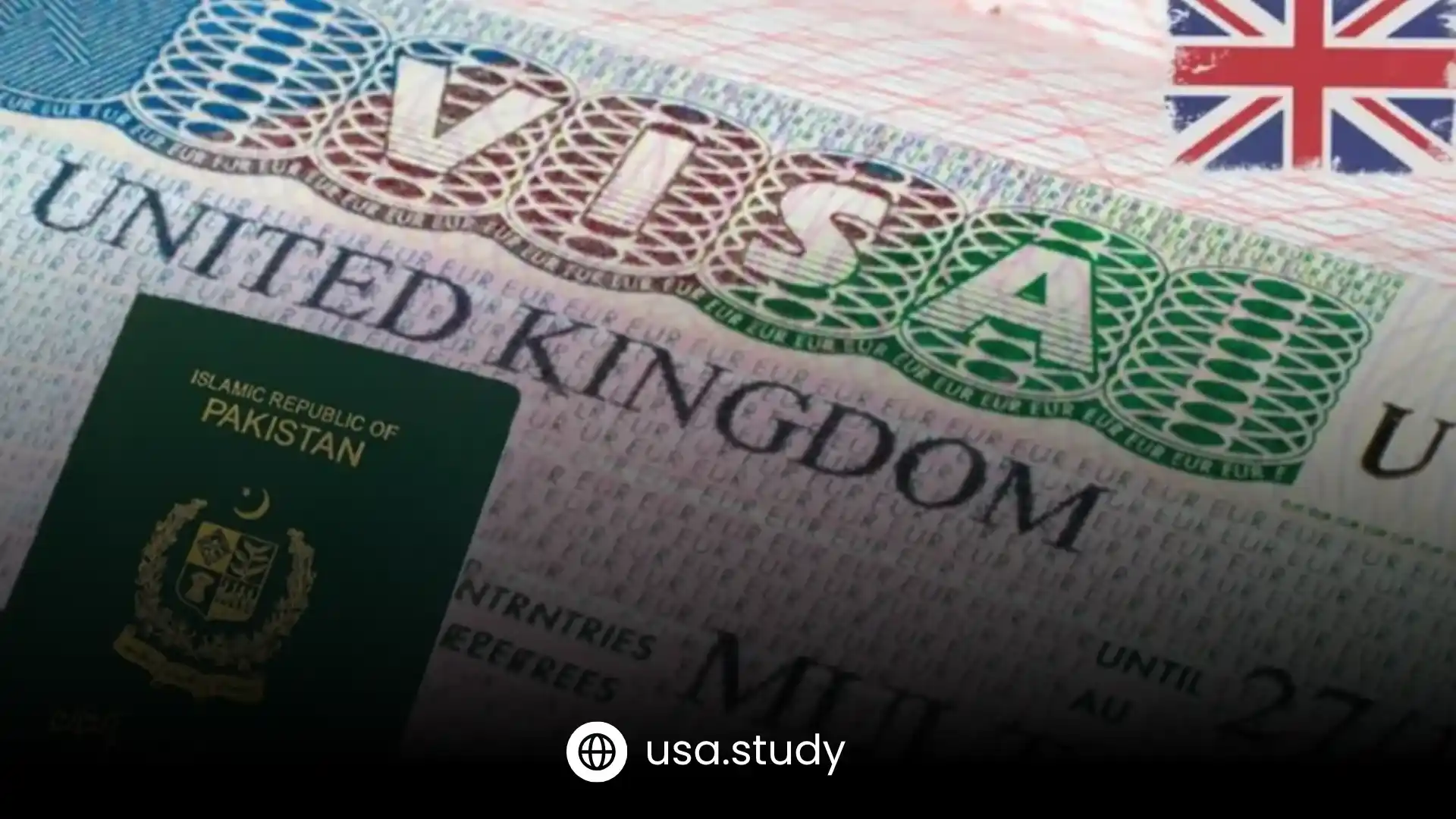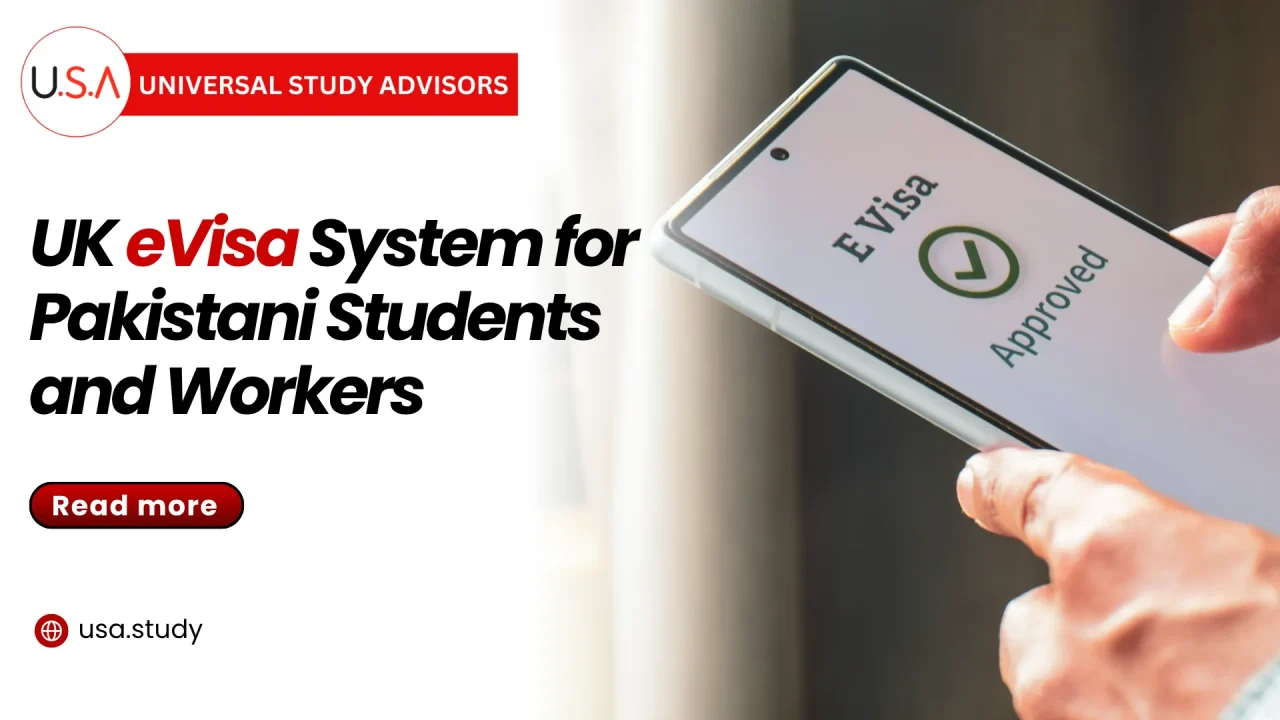The UK has introduced a new evisa system for Pakistani students and workers, marking a significant shift in how visas are issued and managed. Starting July 15, 2025, applicants for study or work visas valid for more than six months will receive a digital immigration status instead of a physical visa stamp in their passport.
This is announced by the British High Commission in Islamabad, and this move will make the process faster, smoother, and more convenient. With the UK eVisa system, students can expect a smooth application experience and access to visa details online.
What is the New UK eVisa System?
The new UK eVisa can be accessed through a UK Visas and Immigration (UKVI) online account and acts as a digital record of a person’s immigration status. Instead of placing visa stickers in passports, approvals will now be given online and linked directly to the applicant’s passport details.
This system has already been used for certain visa types, but it will now cover most Pakistani students and workers. British High Commissioner Jane Marriott explained that those applying for visas lasting over 11 months, or six months depending on their visa route, will no longer need to hand in their passports for stickers. This means they can keep their travel documents throughout the process, offering greater flexibility and peace of mind.
Who is Eligible for a UK eVisa?
The UK eVisa rollout applies to main applicants in several categories:
- Study visas, including short-term routes up to 11 months
- Skilled Worker visas, often for qualified roles like health and care professionals
- Global Business Mobility routes (Specialist Workers, Trainees, Service Suppliers, etc.)
- Global Talent visas
- Youth Mobility Scheme
- International Sportsperson visas
- Temporary work visas such as the Charity or Creative Worker programs
Dependents and applicants for short visitor visas will still receive physical visa stickers.
Any current valid visa stickers in passports will remain valid until their expiry date.

Why Is the Change Taking Place Now?
This change is part of the UK’s long-term plan to move to a fully digital visa system, which began in 2024. The goal is to make the process faster, safer, and more efficient. Digital records are more complicated to fake and easier to check, making it simple for travellers to prove their status to airlines, universities, employers, or landlords.
With eVisas, applicants no longer need to send in their passports to visa centres. Instead, they link their travel document to their UKVI account and can share proof of their visa online through the “View and Prove” service.
British High Commissioner Jane Marriott said the change keeps all existing visa rights but makes the process more convenient. People can keep and use their passports freely while their visa is being processed, without interrupting travel plans.
Impact on Pakistani students and workers
The new UK eVisa system removes possible obstacles for many Pakistani students enrolling in British colleges or universities.
In the past, students had to submit their passports well in advance of their travel, which made preparation difficult. They can now travel more freely and keep their passports thanks to eVisas.
In a similar vein, workers, including those on Global Business Mobility or Skilled Worker routes, can keep working. At the same time, their visas are being processed, which minimizes any interference with their plans for employment or relocation.
Reduced airport clearance times and safe, electronically verifiable credentials for entry into the UK or verification of status to institutions are two of the most notable structural impacts.
Conclusion
The UK eVisa system for Pakistani students and workers is a significant step towards a faster, safer, and more convenient visa process. Replacing physical stickers with secure digital records, it eliminates delays, reduces paperwork, and allows applicants to keep their passports throughout the process. For students, this means smoother preparation for studies in the UK, and for workers, it ensures minimal disruption to employment or relocation plans. As the UK moves towards a fully digital immigration system, Pakistani applicants can expect improved efficiency, stronger security, and a more streamlined visa experience.
Maham Muneer is a passionate content writer with expertise in writing engaging blogs on education and study abroad topics. Her writing aims to guide readers in making informed decisions about their academic and international opportunities. Whether it’s exploring top universities, understanding visa processes, or finding scholarships, her goal is to provide valuable insights that inspire and empower students to achieve their dreams.



